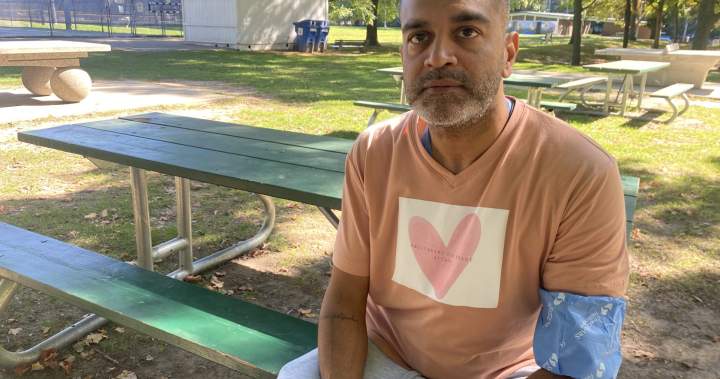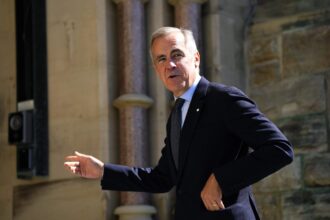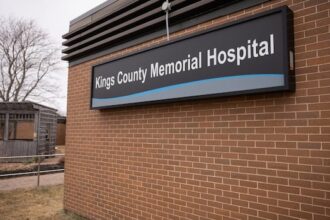In the heart of downtown Toronto, amid the rush of morning commuters, an extraordinary act of human compassion unfolded that would forever change the life of 57-year-old Michael Trentino. While walking along Yonge Street last Tuesday morning, Trentino collapsed without warning—his heart suddenly failing him as pedestrians streamed past in the early morning light.
“I remember feeling lightheaded, and then nothing,” Trentino explained from his hospital bed at Toronto General. “The doctors told me later that I had suffered a major cardiac event—a widowmaker heart attack that kills most people before they even reach the hospital.”
What separates Trentino’s story from countless similar medical emergencies is the swift action of Priya Sharma, a 34-year-old dental hygienist who happened to be walking several paces behind him. Sharma, certified in CPR through a workplace training program just two months prior, recognized the signs of cardiac arrest immediately.
“I saw him go down and nobody was stopping,” Sharma recalled. “Something just clicked in my mind—all that training came rushing back. I dropped everything and started chest compressions while shouting for someone to call 911.”
According to emergency response data from Toronto Paramedic Services, survival rates for out-of-hospital cardiac arrests hover around 10 percent when immediate CPR isn’t administered. Each minute without intervention reduces survival chances by approximately 7-10 percent.
Dr. Anita Cheng, Chief of Cardiology at Toronto General Hospital, emphasizes the critical nature of Sharma’s intervention. “Mr. Trentino experienced what we call a ‘golden window’ response. The immediate CPR he received maintained blood flow to his brain while emergency services were en route. Without Ms. Sharma’s action, we would likely be discussing a very different outcome.”
When paramedics arrived six minutes later, they found Sharma still performing compressions, exhausted but determined. They administered advanced life support and transported Trentino to the hospital, where surgeons placed two stents to clear his blocked coronary arteries.
The incident has sparked renewed calls from the Toronto Heart and Stroke Foundation for expanded CPR training programs across the city. Their statistics show that while nearly 40,000 Canadians experience cardiac arrest annually outside of hospitals, only about 30 percent of bystanders feel confident enough to perform CPR.
Toronto Mayor Olivia Chow has announced plans to increase public access to automated external defibrillators (AEDs) following the incident, telling CO24 News that “every public building in this city should be equipped with these life-saving devices.”
For Trentino, a father of three and grandfather of two, the encounter has fundamentally altered his perspective. “I’ve always been the type to keep my head down, mind my own business. But Priya stepped up when it mattered most. How do you thank someone for your life?”
The two met formally yesterday when Sharma visited Trentino’s hospital room, bringing a small plant and a handmade card from her seven-year-old daughter. “It was surreal,” said Sharma. “This man was literally dying in my hands a week ago, and now we’re chatting about our families.”
Trentino, who runs a small accounting firm in the financial district, plans to fund CPR training for his entire staff when he returns to work. He’s also organizing a neighborhood training session in his Etobicoke community.
“This experience shows how interconnected we truly are,” reflected Trentino. “In a city where we often avoid eye contact on the subway, my life was saved by a complete stranger’s willingness to get involved.”
As cardiac care continues to advance across Canada, one question remains particularly poignant: in a moment of crisis, would you have the knowledge and courage to step forward as Sharma did, or would you become another passing face in the crowd?










